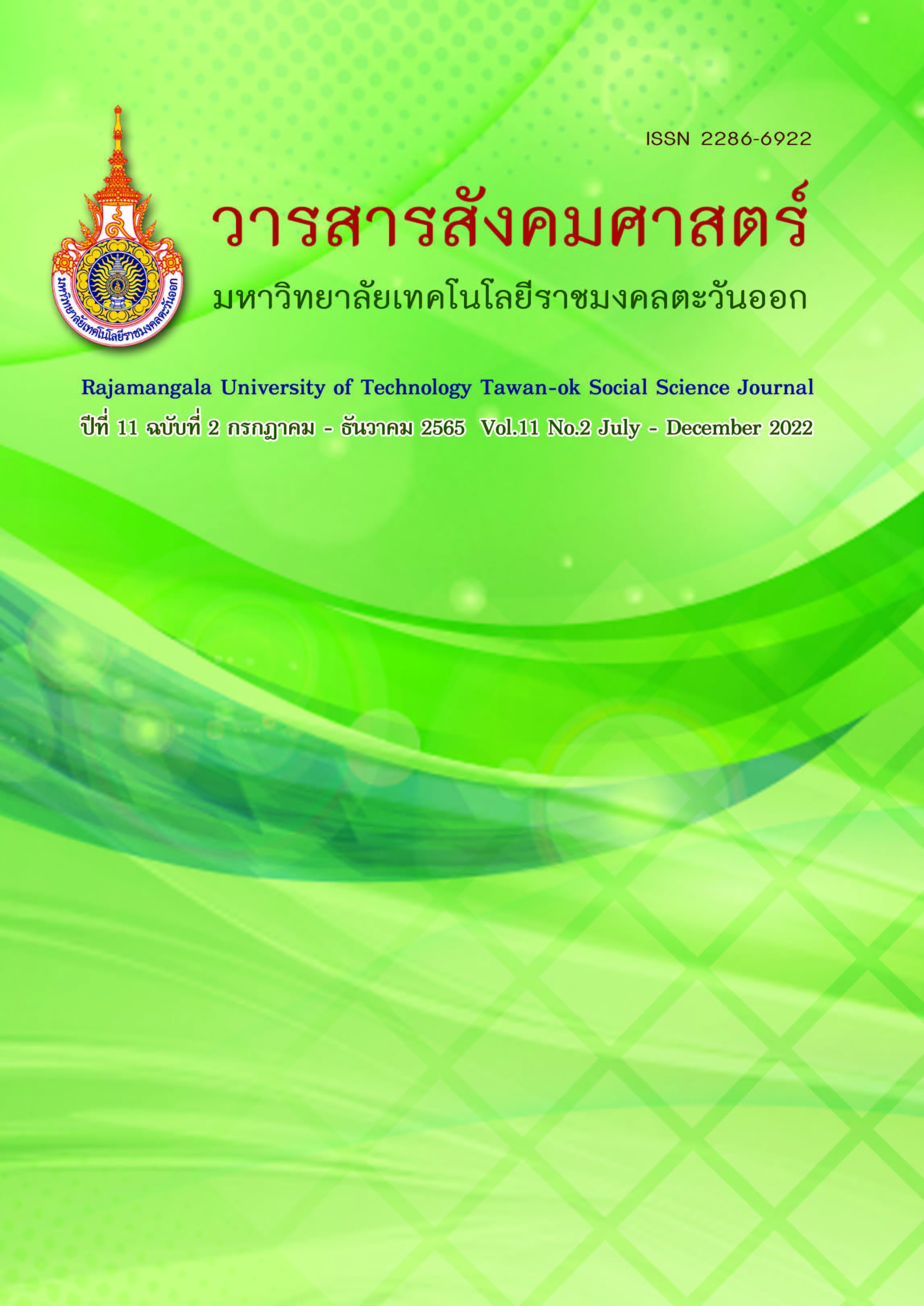The Influence of Competence and Organizational Support of Chinese Higher Vocational Teachers on Job Performance
Main Article Content
Abstract
This paper studies the impact of the relationship between Chinese higher vocational teachers' competence and organizational support on their job performance, and constructs the relevant theoretical dimensions and scales for evaluation and measurement. Through interviews and questionnaires, various dimensions of the impact on the three related variables are collected and established. These studies can strengthen the training of professional competence, organizational management and communication ability of Chinese higher vocational teachers, and provide effective management basis for administrators of Chinese higher vocational colleges.
Article Details

This work is licensed under a Creative Commons Attribution-NonCommercial-NoDerivatives 4.0 International License.
References
Borman, W. C., & Motowidlo, S. J. (1997). Task performance and contextual performance: The meaningfor personnel selection research. Human Performance, 10(2), 99-109. https://doi.org/10.1207/s15327043hup1002_3
Campbell, J. P. (1990). Modelling the performance prediction problem in industrial and organizational psychology. In M. D. Dunnette &
L. M. Hough (Eds.), Handbook of Industrial and Organizational Psychology (pp. 687-732). Palo Alto, CA: Consulting Psychologists Press.
Chen Jian’an, Jin Jing & Fa He. (2013). Frontier analysis and future prospects of entrepreneurial competence research. Foreign Economics and Management, 35(09): 2-14+24.
Chen Wansi. (2001). Human Resources Manager: Nine Roles in One. China Talent, (04), 39-40.
Cormier, S., & Hackney, H. (1999). Counselling strategies and interventions (5th ed.). Needham Heights, MA: Allyn & Bacon.
Eisenberger, R., Huntington, R., Hutchison, S., & Sowa, D. (1986). Perceived organizational support. Journal of Applied Psychology, 71(3),
-507.
Fu Yiqun, Ling Wenshuan & Fang Liluo. (2003). Dynamic matching model of human resource allocation. Economic Management, (05),
-41.
Gao Zhonghua & Zhao Chen. (2014). Will organizational politics in the workplace harm employee performance? Based on the perspective of individual-organizational fit theory. Psychological Journal, 46(08),1124-1143.
Gu Yuandong, Zhou Wenli & Peng Jisheng. (2014). Research on the influence mechanism of organizational support on the innovation
behavior of R&D personnel. Management Science,27(01), 109-119.
He Qizong. (2014). Research on the competence of teachers in my country’s universities: progress and reflections. Higher Education
Research, 35(10), 38-45.
He Qizong & Xiong Sipeng. (2015). Research on the construction of teaching competency model of university teachers. Higher
Education Research, 36(07), 60-67.
Huang Yiqun, Fan Wei, & Fu Jianchun. (2007). Research on the buffer effect of responsibility and organizational support on the
relationship between work-family interface and performance. Applied Psychology, (01): 65-72.
Jin Bei. (2016). On the 3.0 Era of Economic Globalization-Also on the concept of “One Belt One Road” interoperability. China Industrial
Economy, (01), 5-20.
Li Changhong, Gao Peixia, Han Ruijing, Song Zhihong. (2014). The clue effect of negative emotions on interpersonal trust: a test based
on the trust game paradigm. Journal of Management Science,17(10): 50-59.
Ling Wenshuan, Fu Yiqun & Fang Liluo. (2003). Influencing factors of employee turnover intentions in enterprises. Talent Outlook, (08),
Liu Lihua, Xu Xiangyi. Performance management model of knowledge workers and its optimization [J]. Shandong Social Sciences, 2006,
(05): 56-58.
Luo Shengqiang. (2003). Problems and countermeasures in the internal control of Chinese enterprises. Contemporary Economy, (04), 49.
Liao Changyin. (2007). The structural model of teachers’ job characteristics and its recheck validity. Educational Research and Experiment, (05), 46-50.
McLagan, P. (1980) Competency Models. Training and Development Journal, 34, 12-23.
Murphy. S.E. (1990). Communicating the vision in supervision. https://doi.org/10.1002/pfi.4160290207
Rhoades, L., & Eisenberger, R. (1987). Perceived organizational support: A review of the literature.Journal of Applied Psychology, (4), 698-714 (200).
Shi Kan. (2006). Human resource development based on competency model. Advances in Psychological Science, (04), 586-595.
Song Qian & Liao Changyin. (2007). On the problems and countermeasures in the research methods of the domestic competency
model. Coastal Enterprises and Technology, (01), 28-30.
Spencer & Spencer. (1993). Competence at Work: Models for Superior Performance. Canada: John Wiley & Sons, Inc.
Sun Hongfei, Ni Jiaran, Wu Huijuan & Zhou Lanping. (2016). An empirical study on the relationship between mental capital and job performance of knowledge workers. Scientific Research Management, 37(05), 60-69.
Wang Lei, Yao Xiang, Wang Haini, Shi Songqu, Yang Qian, Dang Junhua & Wang Zhujuan. (2008). The Moderating Effect of Managerial
Power Distance on the Relationship between the Generation and Implementation of Employees’ Creative Ideas. Applied Psychology, 14(03), 203-207.
Zeng Xiaojuan & Liu Chun. (2015). An Empirical Investigation and Reflection on the Turnover Tendency of Young Teachers in Colleges
and Universities. College Education Management,9(01): 100-105.
Zhang Junwei, Long Lirong & Wang Taolin. (2017). The impact of high-performance work systems on employee performance: a self-
concept perspective. Management Review, 29(03), 136-146.
Zhang Xuelong, Hou Ke & Yang Feng. (2013). An Empirical Study on the Relationship between University Teachers’ Organizational
Support, Organizational Commitment and Job Performance.
Journal of Shijiazhuang Tiedao University (Social Science Edition), 7(03), 104-108. Zhiqiang Liu, Chuanjun Deng, Jianqiao Liao, Lirong
Long. (2015) Organizational support, status recognition and employee innovation: the perspective of employment diversity. Journal of Management Science, 18(10), 80-94.


